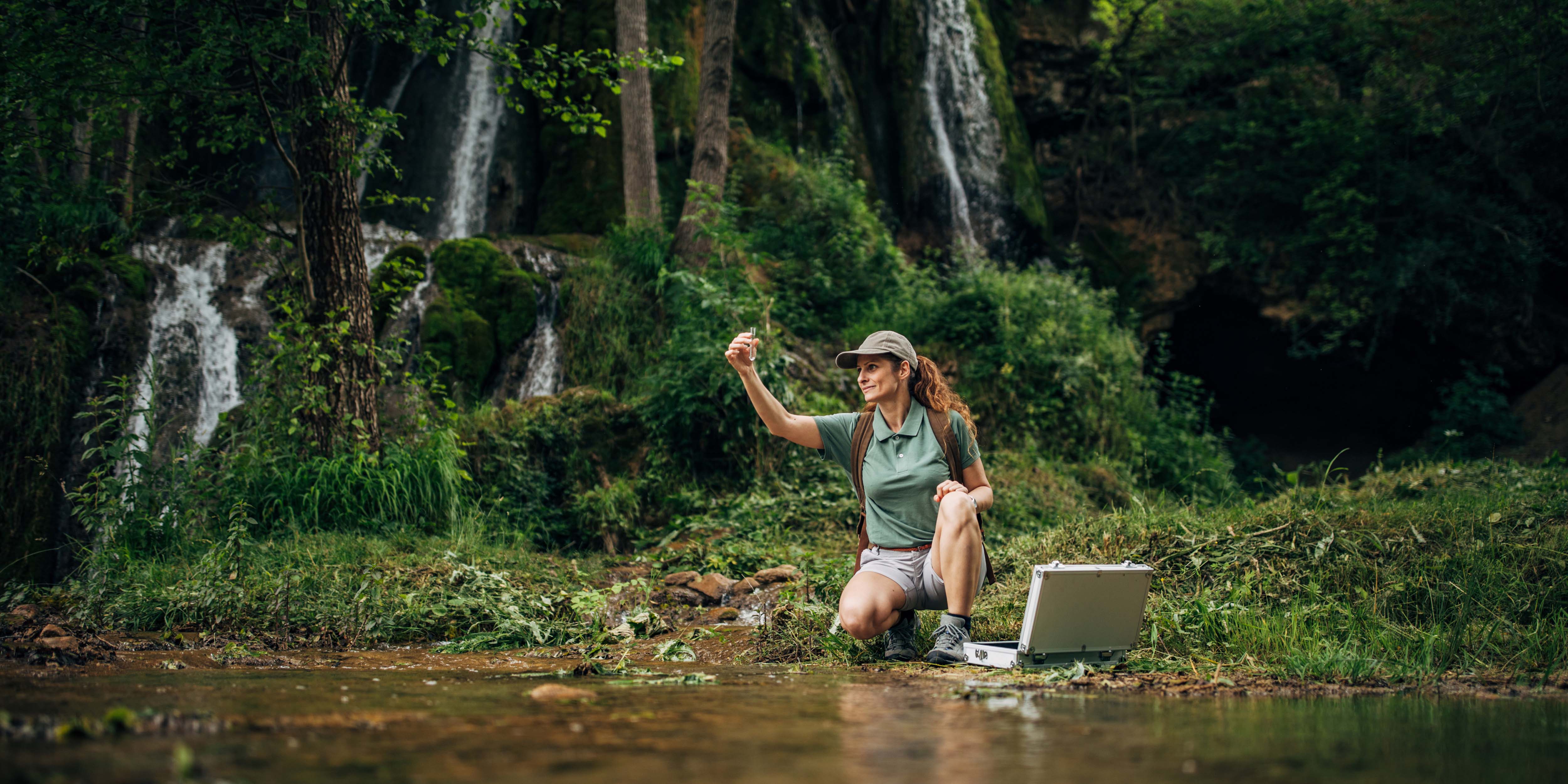WMHS Graduate Degree Options
Information about our Masters and PhD Programs

Water resources—essential to humankind—have become even more critical as the world's population expands, climate change brings new challenges and technology both enhances and depletes resources.
The Water Management and Hydrologic Science (WMHS) program in the College of Arts & Sciences provides a unique interdisciplinary approach to all aspects of water management, conservation and protection with three degree options.
Master of Water Management (non-thesis)
This degree is intended to provide professional graduate education emphasizing problem solving and technical skills for students who will manage public water systems and water resources. The curriculum is structured but it is still flexible, enabling students, with the guidance of an advisory committee, to design courses of study that are in accord with their career objectives.
Required WMHS Courses (9 hours)
- WMHS 601 Applications and Problems in Hydrological Sciences – 3 hours
- WMHS 602 Contemporary Issues in Water Resources – 3 hours
- WMHS 681 Seminar – 2 hours
- WMHS 685 Directed Studies – 1 hour
Common Body of Knowledge Water Courses (12 hours)
- LAW 659 Water Law and Regulation – 3 hours
- AGEC 606 Water Resource Economics or AGEC 604 Natural Resource Economics – 3 hours
- CVEN 664 Water Resources Engineering, Planning Management – 3 hours
- GEOL 614 Advanced Hydrogeology – 3 hours
Required Water Courses (minimum of 9 hours)
- Students select courses from the required list. See Handbook
30 Total Hours Required for Degree
Students have until the start of the second semester to select a graduate advisory committee. During the first semester all MWM students should consult with the Program Chair or Program Coordinator to identify a graduate committee. The student’s advisory committee for the MWM degree will consist of no fewer than three members, two of which must be members of the WMHS Faculty. At least one or more of the members must be from a department other than the student’s chair but all three may be on the WMHS faculty.
Master of Science (thesis)
The degree is designed for students with technical backgrounds to complement their primary discipline by obtaining scientific, technical, or managerial expertise in water. In addition to the water courses, students are required to take a research methods class and a statistics class from the designated list.
Required Water Courses (minimum of 12 hours)
- WMHS 601 Applications and Problems in Hydrological Sciences – 3 hours
- WMHS 602 Contemporary Issues in Water Resources – 3 hours
- WMHS 681 Seminar – 2 hours
- Students select courses from the required list (See Handbook) – 4 hours
Electives (up to 6 hours)
- Any tools, planning, or certificate courses are allowed.
Required Statistics and Research Methods Courses (minimum of 6 hours)
- Students select courses from the designated lists (See Handbook).
Research Hours (1 hour minimum; 8 hours maximum)
- WMHS 691. Students may opt to add additional courses in lieu of some research hours.
32 Total Hours Required for Degree
Hours determined by student and student advisory committee.
Students applying for the master’s degree have until the start of the second semester to select a graduate chair and advisory committee. During the first semester all master’s students should consult with the Program Chair or Program Coordinator to identify a graduate chair and committee. The student’s advisory committee for the Master’s degree will consist of no fewer than three members, two of which must be members of the WMHS Faculty. At least one or more of the members must be from a department other than the student’s chair but all three may be on the WMHS faculty.
Doctoral Program (Ph.D.)
This degree is designed to give students a comprehensive knowledge of water science and hydrology and provide training in methods of research. Each student must have a chair before acceptance into the program. Students will work with their chair and the advisory committee to develop a course of study satisfying the curriculum.
Required Water Courses (minimum of 15 hours)
- WMHS 601 Applications and Problems in Hydrological Sciences – 3 hours
- WMHS 602 Contemporary Issues in Water Resources – 3 hours
- WMHS 681 Seminar – 3 hours
- Students select courses from the required list. (See Handbook) – 6 hours
Required Statistics and Research Methods Courses (9-10 hours)
- Students who have not taken graduate courses in statistics and research methods will be required to take one research methods course and two statistics courses from the designated lists (See Handbook).
Electives (6 or more hours)
- Any tools, planning, or certificate courses are allowed.
Research Hours (18 hours or more)
- WMHS 691. Students may opt to add an additional course in lieu of some research hours.
64 Total Hours Beyond a Master’s Degree, with Thesis, Required for Degree
Hours determined by student and student advisory committee.
Students applying for the Ph.D. degree program must have identified a graduate committee chair from the WMHS Faculty who has agreed to serve in that capacity before they can be admitted to the WMHS Program. The students’ advisory committee for the doctoral degree will consist of no fewer than four members, three of which must be members of the WMHS Faculty. At least one or more of the members must be from a department other than the student’s chair but all four may be on the WMHS faculty.
